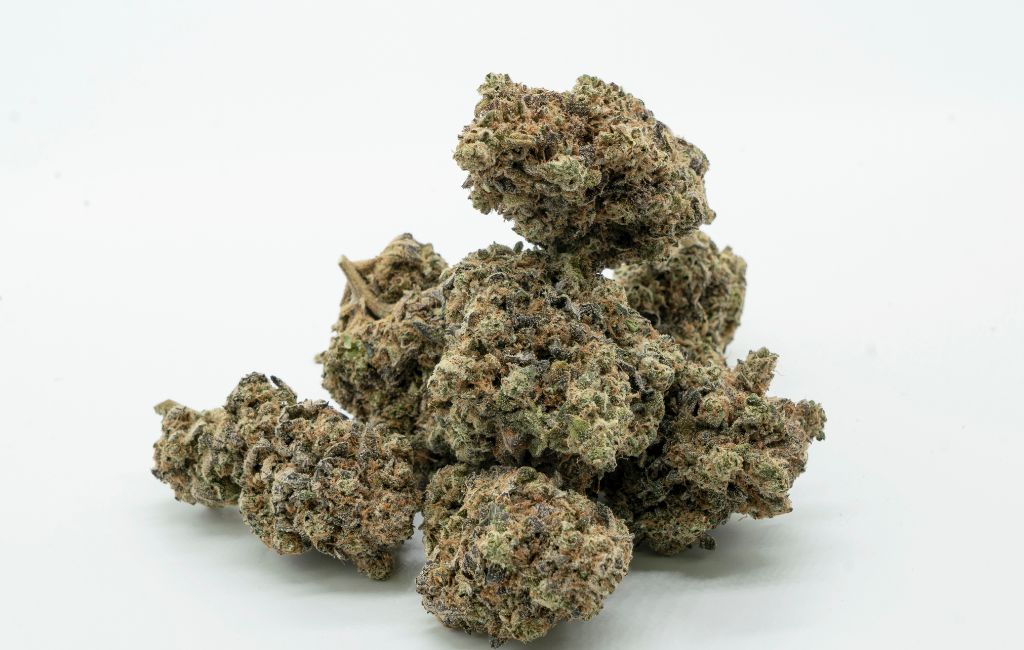Top THCa Flower and Inflammation
Interest in the potential health benefits of cannabis has surged in recent years, with particular attention on its anti-inflammatory properties. Among the various compounds found in cannabis, THCa (tetrahydrocannabinolic acid) has emerged as a promising candidate for managing inflammation. This article explores the top THCa flower and inflammation effects and examines the science behind their efficacy.
Understanding THCa
THCa is a non-psychoactive cannabinoid found in raw and live cannabis plants. Unlike THC, which is known for its psychoactive effects, THCa does not produce a “high.” When cannabis is heated through smoking, vaping, or cooking, THCa converts to THC. This conversion process is known as decarboxylation.
Research suggests that THCa may offer several health benefits, including anti-inflammatory, neuroprotective, and antiemetic properties. These potential benefits have sparked interest in using THCa-rich cannabis strains for therapeutic purposes.
How THCa Works Against Inflammation
Inflammation is the body’s natural response to injury or infection. While acute inflammation is a protective mechanism, chronic inflammation can lead to various health issues, including arthritis, cardiovascular diseases, and autoimmune disorders.
THCa is believed to interact with the body’s endocannabinoid system (ECS), which plays a role in regulating inflammation. By modulating the ECS, THCa may help reduce inflammation and alleviate related symptoms.
Top THCa Flower Strains for Inflammation
Several cannabis strains are known for their high THCa content and potential anti-inflammatory effects. Here are some of the top THCa flower strains:
- ACDC: ACDC is a sativa-dominant strain with a high THCa content and low THC levels. It is renowned for its potential to reduce inflammation and pain without causing psychoactive effects.
- Harlequin: This sativa-dominant strain is known for its balanced cannabinoid profile, offering both THCa and CBD. Harlequin is often used to manage inflammation and pain.
- Cannatonic: Cannatonic is a hybrid strain with a high THCa content. It is popular among those seeking relief from inflammation and muscle spasms.
- Sour Tsunami: Known for its high THCa and CBD levels, Sour Tsunami is a hybrid strain that may help reduce inflammation and pain.
- Pennywise: This indica-dominant strain is rich in THCa and CBD, making it a potential choice for managing inflammation and anxiety.
Scientific Evidence Supporting THCa’s Anti-Inflammatory Properties
Several studies have explored the anti-inflammatory effects of THCa. A study published in the “Journal of Pharmacology and Experimental Therapeutics” found that THCa exhibited significant anti-inflammatory properties in animal models. The study suggested that THCa could be a potential therapeutic agent for inflammatory conditions.
Another study published in “Biochemical Pharmacology” highlighted THCa’s ability to inhibit the production of pro-inflammatory cytokines, which are proteins involved in the inflammatory response. This research supports the idea that THCa may help modulate the immune system and reduce inflammation.
Case Studies and Anecdotal Evidence
While scientific research is ongoing, anecdotal evidence from patients and healthcare providers suggests that THCa-rich cannabis strains may help manage inflammation. For instance, some patients with arthritis have reported reduced pain and improved mobility after using THCa-rich strains.
Healthcare providers specializing in cannabis-based therapies have observed positive outcomes in patients using THCa for inflammatory conditions. These observations, combined with emerging scientific evidence, highlight the potential of THCa as a therapeutic option.
Considerations for Using THCa Flower
When exploring THCa flower for inflammation, several factors should be taken into account:
- Consultation with Healthcare Providers: Before using THCa-rich cannabis strains, individuals should consult with healthcare providers, especially if they have pre-existing medical conditions or are taking other medications.
- Method of Consumption: THCa is most effective when consumed in its raw form, such as through juicing or using tinctures. Heating cannabis converts THCa to THC, reducing its non-psychoactive benefits.
- Quality and Source: The quality and source of cannabis can impact its efficacy. It is advisable to obtain THCa flower from reputable dispensaries that provide lab-tested products.
Conclusion
THCa flower holds promise as a natural option for managing inflammation. With its non-psychoactive properties and potential health benefits, THCa offers an appealing alternative for those seeking relief from inflammatory conditions. While scientific research continues to explore its full potential, anecdotal evidence and preliminary studies suggest that THCa-rich strains like ACDC, Harlequin, and Cannatonic may provide relief for individuals dealing with inflammation. As with any therapeutic approach, consulting with healthcare providers and considering individual needs and circumstances is advisable when exploring THCa flower for inflammation.
